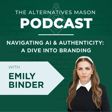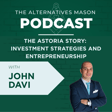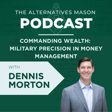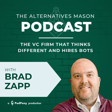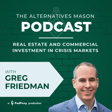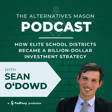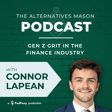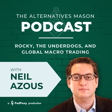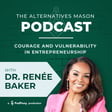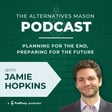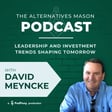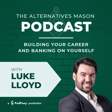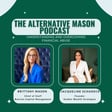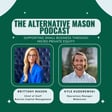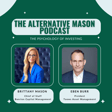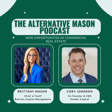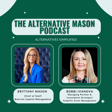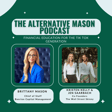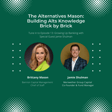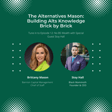
The Alternatives Mason: Building Alts Knowledge Brick by Brick | Episode 8 | Alternative Investment Mega Trends Featuring Andy Hagans
Welcome to The Alternatives Mason: Building Alts Knowledge Brick by Brick. Banrion Capital Management uses technology to help independent advisors scale and educate themselves on alternative investments. Since education is such a big piece of the Banrion mission and business, we are excited to kick off this series to dive into the nits and grits of the alternatives space. Episode 8 "Alternative Investment Mega Trends" Features Andy Hagans.
Andy Hagans is a two-decade serial entrepreneur who helps High Net Worth Investors (HNWIs) protect and grow their wealth with alternative investments.
After founding, scaling and selling four different seven- and eight-figure businesses (including ETFdb, now part of VettaFi) to private equity buyers, he realized that there was more potential profit to be made on the buying side of private equity. He went on to purchase multiple businesses through private equity partnerships, and now partners with talented entrepreneurs and real estate developers through GP, Co-GP, and LP investments.
Andy is a co-founder of WealthChannel, the leading community for HNWIs who are placing capital in alternative investments. Andy also hosts The Alternative Investment Podcast, the #1 alts podcast reaching advisors, family offices, and High Net Worth Investors. In the show, he interviews asset managers, family offices, and industry thought leaders, as they discuss the most effective strategies to grow generational wealth.
Andy graduated from the University of Notre Dame, and resides in Michigan with his wife and five children.
Connect With Andy Hagans- The Alternative Investment Podcast on Apple Podcasts
- The Alternative Investment Podcast on Spotify
- Andy Hagans on LinkedIn
- Andy Hagans on 𝕏
Learn More About Banrion: Banrion Capital Management
Follow Brittany on 𝕏: @Brittany_Mason
Follow Banrion on 𝕏: @Banrion_Capital
Subscribe to our YouTube Channel: @QueenofAlts
Important Disclosures:
The opinions expressed on the “The Alternative Mason Podcast” are for general informational purposes only and are not intended to provide specific advice or recommendations for any individual or on any specific security.
It is only intended to provide education about the financial industry. To determine which investments may be appropriate for you, consult your financial advisor prior to investing. Any past performance discussed during this program is no guarantee of future results.
The guests featured on this program may be participants on Banrion Capital Management’s platform. As such Banrion may receive payment for their participation as a platform partner.
Any indices referenced for comparison are unmanaged and cannot be invested into directly. As always please remember investing involves risk and possible loss of principal capital; please seek advice from a licensed professional.
Investments are not FDIC-insured, nor are they deposits of or guaranteed by a bank or any other entity, so they may lose value.
Investors should carefully consider investment objectives, risks, charges and expenses. This and other important information is contained in
